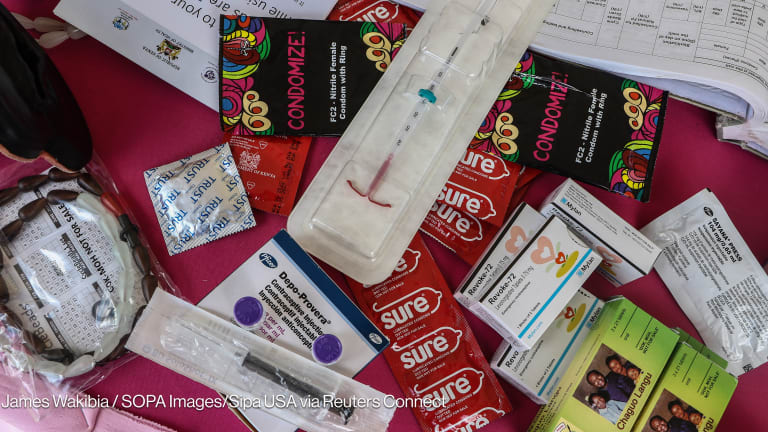
After the birth of their third child, Semeni and her husband Balisyega were anxious to secure contraceptives in Tanzania.
“I desperately wanted to avoid any accidents from happening because these three children are what I am capable of taking care of,” Balisyega recently told a service provider. After much thought, the couple decided that a contraceptive implant — effective for three years — would best meet their family planning needs, and Semeni was able to receive one at a local clinic.
Two years ago, Semeni and Balisyega may not have had access to a range of modern contraceptive options, including long-acting reversible methods like implants. In fact, the Lake Zone — where they live — and the Western Zone have the lowest contraceptive prevalence rates and highest maternal and child death rates in the country. CPR in the Lake Zone ranges from only 10 to 12 percent, and 38 percent of women who want to avoid pregnancy are not using modern contraceptives.
To increase contraceptive access and use over the years, these zones and others across Tanzania have grappled with a number of challenges including stockouts, limited health worker capacity, inadequate community support, low male involvement, and myths and misconceptions about the safety of modern contraceptives. But recently, and thanks to renewed commitments from the government and dedication from all levels of civil society — including from men, as Semeni and Balisyega’s story shows — we’re on track to improve the situation.
This momentum was set in motion at the historic 2012 Summit on Family Planning in London, where global leaders committed to provide an additional 120 million women in the world’s 69 poorest countries — among them Tanzania — with access to family planning information, services and supplies by 2020.
See more stories from this series:
● Universal access to reproductive health care: A global obligation and opportunity
● Kindling family planning change in urban slums
● Shujaaz
Since then, there’s been considerable progress on the ground. At the national level, the Tanzanian government has developed along with its partners a FP2020 Action Plan with targeted interventions to enhance integrated family planning services, address youth contraceptive needs, strengthen outreach services, and effectively engage policy and decision-makers to embrace family planning as a priority on the development agenda.
In addition, thanks to successful advocacy efforts by Advance Family Planning and other partners, the government doubled its family planning allocation from 1 billion shillings (almost $600 million) in 2013 to 2 billion shillings in 2014.
The government has also revitalized the Green Star Family Planning Campaign, in partnership with the Tanzania Capacity and Communications Project at the Johns Hopkins University Center for Communication Programs. First launched in Tanzania in 1993, the campaign spreads family planning messages through mass and social media, as well as through community outreach. During relaunch activities in the Lake Zone this June, Green Star providers reached 28,000 clients with family planning services, with the majority opting for long-acting or permanent methods.
Through initiatives like these, contraceptive access and options are now becoming a reality for Semeni and Balisyega and thousands of other couples across Tanzania. Messages on the importance of family planning are reaching individuals at all levels of society leading to a significant change in perception around family planning. This is reflected in the recent uptick of family planning users — particularly in areas with the greatest unmet needs. For example, the Mara region, which has the lowest CPR in the country, doubled the number of family planning users between October 2013 and June 2014.
While there has been tremendous progress, there is however still room for growth — and we can do a lot more. To meet our national family planning targets, we need all levels of government, the private sector and civil society to maintain strong commitments and dedication to ensure that the resources, commodities and systems are in place to reach all women with family planning information and services.
When we provide women with access to contraceptives, it has a positive ripple effect on families, communities and nations. It’s critical to continue to invest in family planning and ensure that increasing contraceptive use remains central to our national development plans in Tanzania and around the world.
Now is the time for us to make this investment in our women and in our future.
This article is part of a series by the Bill & Melinda Gates Foundation that culminates on World Contraception Day. Check out more stories about global health and other important issues at the Impatient Optimists blog.
Join the Devex community and access more in-depth analysis, breaking news and business advice — and a host of other services — on international development, humanitarian aid and global health.








